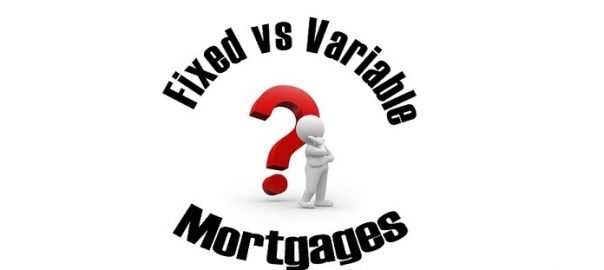Fixed versus Variable Rate Mortgages – How do you choose?
 There are many varieties of home mortgages to consider when buying a home. The best type of home loan for a homebuyer’s particular circumstances depends on the answers to a few questions, which are:
There are many varieties of home mortgages to consider when buying a home. The best type of home loan for a homebuyer’s particular circumstances depends on the answers to a few questions, which are:
• How long do you plan to own or live in the home?
• How good is your credit history?
• What is your earning level and tax bracket?
Expected Time of Owning or Living in the Home
If the plan is to own or live in the home for more than five years, many like to lock in a fixed rate home loan, especially now during a period when the interest rates are low.
This guarantees the monthly mortgage payment will be the same for the life of the loan. Moreover, the Federal Reserve recently announced plans to increase interest rates gradually over the next five years. When the interest rates set by the Federal Reserve go up, mortgage interest rates also increase.
If you plan on owning or living in the home for less than five years, a better choice for the home loan would be a variable rate loan, which is also called an Adjusted Rate Mortgage (ARM). The reason ARM loans are better for a shorter period is that the interest rate is lower in the beginning when compared to fixed rate loans. The downside is, when the interest rates rise after a certain period, the ARM monthly payments also rise.
To determine the impact of an increase in the interest rates in the future, investigate the terms of the ARM loan and look for these things:
1. What financial interest rate index is used for the calculations?
2. How often can the interest rate change?
3. What are the limits (if any) per rate increase?
4. What is the maximum loan interest rate (if any)?
5. Are there any prepayment penalties for paying the loan early?
6. Can you pay points (1 point is 1% of the loan) to lower the rate?
7. What date is it necessary to pay off the total remaining loan?
Once you have the answers to these questions, make a timeline chart showing the changes for the monthly mortgage payments, if the interest rates rise over the next years.
Credit History
Having a good credit history allows a person to get the best interest rates and they have less trouble refinancing.
For those with bad credit, they should exercise extreme caution in taking an ARM loan. Not only can interest rates rise, the approval criteria of the lenders can change. It may not be possible to refinance the home when desired if the person has a bad credit history. This phenomenon is what caused so many people to lose their homes to foreclosure during the 2008 real estate market collapse.
Earning Level and Tax Bracket
If your earning level will increase in the near future, it may be better to take an ARM loan to save money on the monthly mortgage payments (and have a lower mortgage tax deduction).
After increasing your income, the home can be refinanced to a fixed rate loan and higher mortgage payments can be made, which increases the tax deduction.
Fixed Rate Loans
Fixed rate loans are available in terms of 10 years to 30 years. The most popular fixed rate loans are either a 15-year loan or a 30-year loan.
ARM Loans
There are many configurations for ARM loans. A popular one is the ARM 5/1 loan. This type of loan has a fixed rate for the first five years and then adjusts annually every year thereafter. An ARM 3/1 has a fixed rate for the first three years and then adjusts annually every year thereafter.
Summary
Consult with a trusted financial advisor, your accountant if you have one, and a real estate attorney to get the best advice on which type of loan to choose. Consider their opinions and then make your own choice based on your realistic expectations of the future.